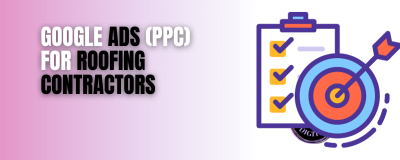There is no getting away from it, on-page technical SEO plays a huge role in the success of a website’s ranking positions. After all, it is widely believed that search engines such as Google look at over 200 different elements to decide on where to rank an individual page.
With so much at stake it is highly important to be on point. Otherwise you are likely to be compromising your ability to rank highly in the search engines results pages (SERP’s). Which can only mean giving business away to the competition.
If you want to improve your standing in Google and the other search engines then our post on “What Is On-Page Technical SEO & Why Does It Matter?” is definitely for you. Read on to learn more…
On-Page Technical SEO - The Definition
On-page technical SEO refers to the optimisation of individual web pages. It is this optimisation that is deemed to improve their overall position in the SERP’s. While at the same time improving the visitor or user-experience.
As we said earlier, there are over 200 factors that search engines take into consideration when looking at the bigger technical SEO picture.
Getting this right is crucial for giving your website the very best of chances to rank against your competitors’ sites.
What Can Go Wrong?
This form of SEO is complex and quite often leads to mistakes being made. Technical SEO takes time and resources to carry out properly.
However, often shortcuts are taken. Which as you can imagine, don’t lead to the desired results.
Search engines become confused about the structure of a website, this results in them not having the ‘confidence’ to show them in the ranking results.
Or other times, pages are withheld from the index, no matter how valuable your content might be. When this happens you are losing opportunities to showcase your goods and services, leading to loss of potential revenue.
If your pages load slowly then your visitors get frustrated. Likely they will leave your site and head over to one of your competitors. Again, lost business for you.
How Search Engines Get Their Information
The fastest way to get Google to ‘find’ your content is to submit it via the Google Search Console (GSC). This free platform allows you to also monitor other key elements of your website’s health.
Simply copy and paste your full URL into the ‘inspect any URL’ section and Google will do the rest.
Within a relatively short period of time, Google will send it’s spiders / robots to dissect through the information you have submitted,as below:

What Makes Up On-Page Technical SEO?
Here is a selection of what we would consider to be the most important elements of on-page technical SEO:
On-Page Technical SEO - The Wrap Up
If you have reached this point then we are pretty sure you have a good idea about the importance of on-page technical SEO.
Many SEO’s will actually go as far as confirming that what you do for on-page is of more importance than other elements, such as off-page SEO.
We 100% concur with this thought process and ensure that it is the back-bone of our local SEO services.
You see, when it’s done right it plays a vital role in helping your website to become visible in the search results. It enhances the experience your users receive, which in itself increases the opportunity for conversion.
By improving your on-page technical SEO you are in a position to increase the chances of attracting organic visitors to your website. And, ultimately gaining more customers and revenue.
Check Out These Related Posts
How To Measure SEO ROI The Easy Way11 min read
SEO can help businesses grow, but it can be expensive without proper controls. To achieve success, measure ROI and take steps to improve it. This post discusses what ROI for SEO looks like and how to measure it.
SEO vs PPC: Which is Better In 2023?14 min read
The COVID-19 pandemic and Ukraine conflict have destabilised the economy, leading to rising inflation and earnings. Businesses can still succeed by marketing effectively, with SEO and PPC being effective ways to gain new business. The post discusses the differences between each platform and which could be a better fit for a business.
Is My SEO Agency Really Helping?17 min read
SEO can be frustrating if you don’t know if your agency is doing their best work. Many agencies don’t give a damn about their clients and don’t deliver on their promises. This post aims to answer the question of whether your SEO agency is helping you.
Local SEO Case Study Fencing Contractor4 min read
[dipl_double_color_heading heading_main_part="Case Study Fencing Contractor Service" _builder_version="4.14.4" _module_preset="default" global_heading_settings_level="h1" global_heading_settings_text_align="left" pre_header_font="||||||||"...
Local SEO Case Study Accountant & Bookkeeper3 min read
[dipl_double_color_heading heading_main_part="Case Study Accountant & Bookkeeper" display_in_stack="on" _builder_version="4.14.4" _module_preset="default" pre_header_font="||||||||" main_header_font="|700|||||||" custom_margin="0px|0px|0px|0px|false|false"...
Local SEO Case Study HVAC Contractor3 min read
[dipl_double_color_heading heading_main_part="Case Study HVAC Contractor" _builder_version="4.14.4" _module_preset="default" global_heading_settings_level="h1" pre_header_font="||||||||" main_header_font="|700|||||||" custom_margin="0px|0px|0px|0px|false|false"...










